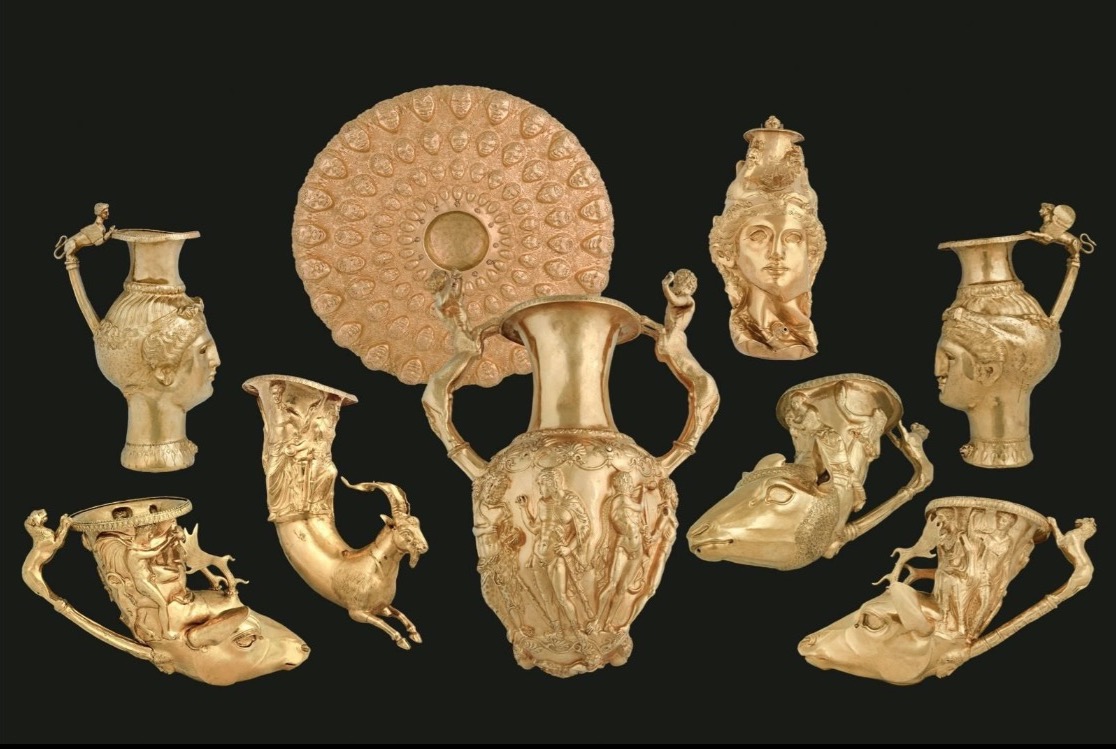When Greek soldiers captured the royal command tent of the Persian king during the Greco-Persian Wars (499–449 BC), they were confronted suddenly and spectacularly by luxury on an unimaginable scale. To many ancient Greek writers, the victories of the small Greek forces against the mighty Persians were a triumph of discipline and restraint over an empire weakened by decadence and excess.
Drawing on dazzling objects from Afghanistan to Greece, this exhibition moves beyond the ancient Greek spin to explore a more complex story about luxury as a political tool in the Middle East and Southeast Europe from 550–30 BC. It explores how the royal Achaemenid court of Persia used precious objects as markers of authority, defining a style of luxury that resonated across the empire from Egypt to India. It considers how Eastern luxuries were received in early democratic Athens, self-styled as Persia’s arch-enemy, and how they were adapted in innovative ways to make them socially and politically acceptable. Finally, it explores how Alexander the Great swept aside the Persian empire to usher in a new Hellenistic age in which Eastern and Western styles of luxury were fused as part of an increasingly interconnected world.
Featuring star loans as well as objects from the British Museum collection, the exhibition brings together exquisitely crafted objects in gold, silver and glass, including the extraordinary Panagyurishte Treasure from Bulgaria. Whether coveted as objects of prestige or disparaged as signs of decadence, the beauty of these Persian, Greek and Hellenistic luxuries shaped the political landscape of Europe and Asia in the first millennium BC – and their legacy persists in our attitudes to luxury today.
Lead image: Panagyurishte Treasure, gold, Bulgaria about 300 BC Photo ©Todor Dimitrov, National Museum of History, Bulgaria
| Duration | 04 May 2023 - 13 August 2023 |
| Times | Daily: 10.00–17.00 (Fridays 20.30) |
| Cost | Adults from £15, |
| Venue | British Museum |
| Address | Great Russell St, London, WC1B 3DG |
| Contact | 442073238181 / information@britishmuseum.org / www.britishmuseum.org |

